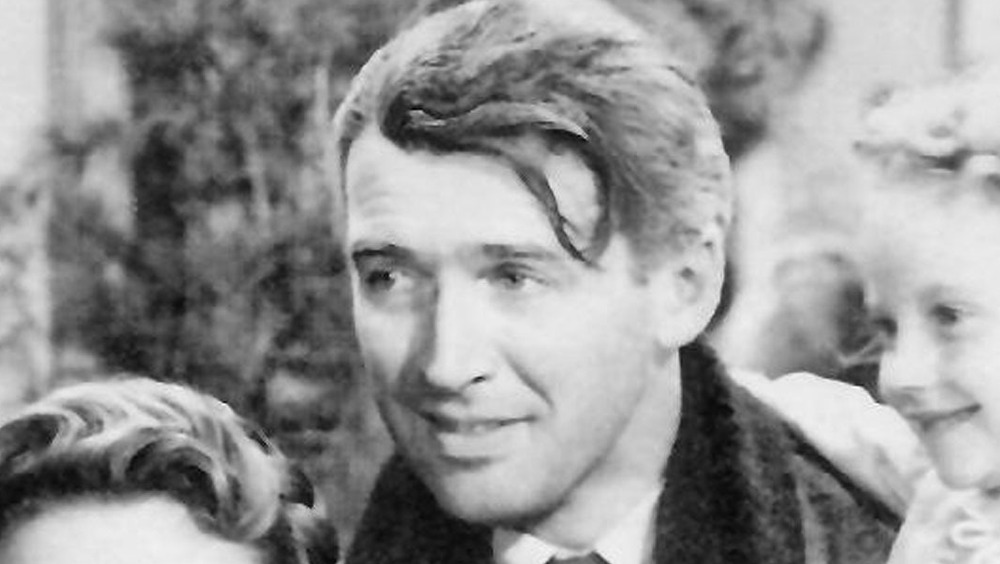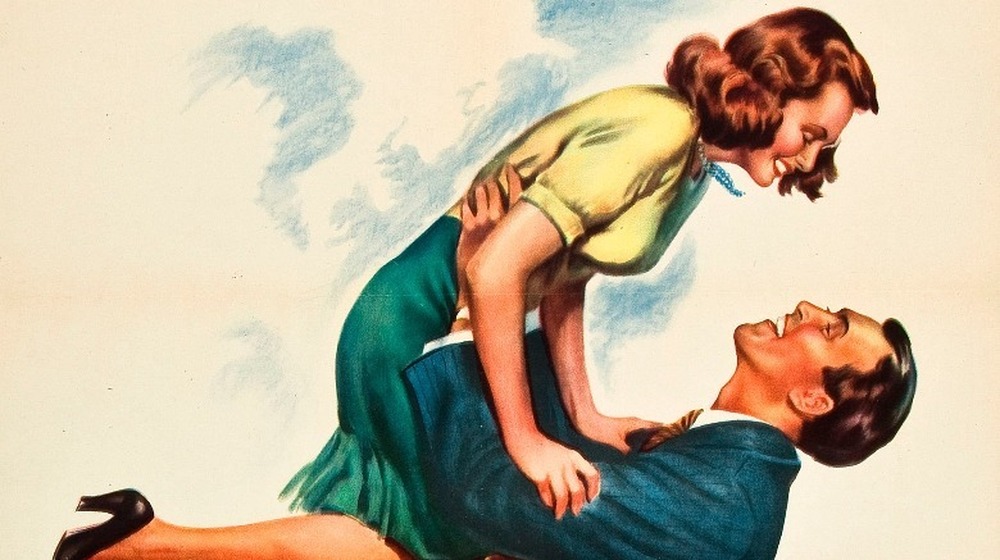Why 'It's A Wonderful Life' Was A Box Office Failure
Over the years, It's a Wonderful Life has become a staple of holiday entertainment and a classic in its own right. When flipping through television channels during the Christmas season, you'll likely find yourself catching the film at some random point on some random channel and watching it until the end. And there's a reason for this: according to Vanity Fair, during the 1970s, the film entered the public domain after its initial copyright term ended. TV studios jumped at the opportunity to show the film during Christmas, so they began airing it every year without having to pay a penny in royalties.
In fact, before the film's public domain status was capitalized on, it was mostly forgotten. After its initial theatrical release it became a failure at the box office. Critics gave the film mixed reviews. Although it was nominated for five Oscars, it didn't win in any of its categories — the consolation prize was an honorary Technical Achievement Award for its dazzling fake snow. Even its positive reviews weren't enough to get audiences into the theaters.
The end of World War II made it hard for audiences to enjoy It's a Wonderful Life
When director Frank Capra approached Jimmy Stewart to act in It's a Wonderful Life, Stewart had just finished his service fighting as an Air Force pilot during World War II, and he had neither a movie studio contract nor an agent, per Independent. When Capra pitched the movie to Stewart, the actor said yes out a need to work more than his belief in the film. The movie would also be a challenge to work on, as Stewart was suffering from Post-Traumatic Stress Disorder from the war. Audiences who'd experienced the damaging effects of the war also had a tough time with the film.
According to Vanity Fair, Jeanine Basinger, author of The It's a Wonderful Life Book, gave her reasons why she believed the film didn't do well at the box office. "This was the first full Christmas after the war," said Basinger. "Everyone was celebrating and in a happy mood. The film has an upbeat ending, but you suffer quite a bit before you get there. And that was part of its problem."
This response may have also led to the film's owners not caring enough to renew the copyright, which is what would lead to its success via television.

